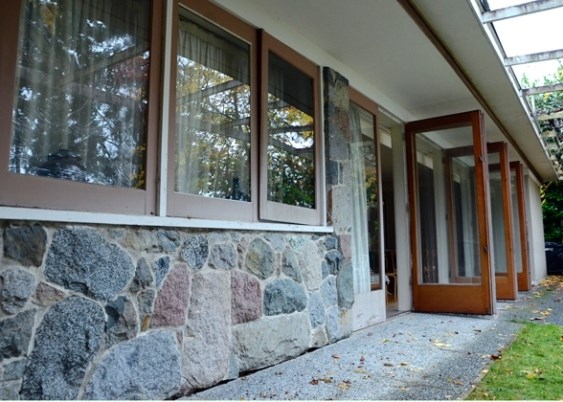The fate of West Vancouver's historic Binning House is up in the air once more after the B.C. Court of Appeal ruled this week the West Vancouver property must be returned to the original trustees of the Binning estate.
The decision handed down by the B.C. Court of Appeal on Wednesday essentially hands the property from The Land Conservancy of B.C. back to trustees of the estate of Jessie Binning - the widow of artist Bert Binning, who designed and built the home.
The judges ruled the trustees never had the authority to hand the historic property over to the conservancy.
It isn't clear what will happen next.
The District of West Vancouver - which offered to buy the property from the financially troubled conservancy for $1 in May of this year - was still studying the decision at the end of this week.
Adele Weder, a Binning expert and an advocate for preserving the house for public use, said she's not sure what the next steps will be.
Trustees of the Binning estate have already had to deal with arduous legal wrangling, she said. "Now they're faced with more decisions."
But Weder said she's glad those now in charge of making a decision are "sensitive to the house's history and cultural importance."
The latest court decision marks another twist in a complex legal battle over the home, a national historic site designed by the late artist B.C. Binning built in 1941. The home is considered an important early example of West Coast modern architecture in Canada.
The Land Conservancy acquired the home from the estate in 2008, after Jessie Binning's death. But, facing pressure from its creditors to pay back $7.5 million in debt, the conservancy went to court last year for approval to sell the Binning House for $1.6 million to a corporation controlled by developer Bruno Wall.
Both the Ministry of the Attorney General and the District of West Vancouver asked the court to stop that and a B.C. Supreme Court judge eventually put the brakes on the sale, concluding that the house had been transferred "for the purpose of its preservation into the future for the public" - a goal that couldn't simply be cast aside.
But the legal tussle didn't stop there.
The University of British Columbia appealed that decision, arguing that if the Binning estate executors didn't want to set up a society to manage the property, according to the will, it should have been sold with the proceeds going to the university's B.C. Binning Memorial Fellowship Fund.
Lawyers for UBC argued the way the trustees of the estate transferred the house to The Land Conservancy - through an intermediary society only set up to satisfy the legal terms of the will - was improper.
This week, the appeal court essentially agreed with that position, saying while the trustees acted with good intentions, they had no authority to make the transfer.
Lawyers and directors of The Land Conservancy were still reviewing the decision this week and were not prepared to make a comment.
The conservancy has been under creditor protection since October of last year.
In the District of West Vancouver's offer to The Land Conservancy this spring, the municipality offered to take over ownership of the Binning House and then put up $150,000 to $300,000 for restoration of the property. It also offered to partner with community groups to oversee programming and raise funds to preserve the residence.



